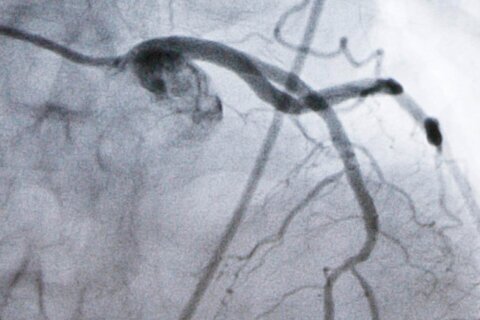What’s the one brain chemical that plays a role in memory, motivation, addiction, pleasure, pain and learning? Dopamine. This chemical is found naturally in the human body and is critical for striking the right balance for physical and emotional health.
Different levels of dopamine can have profound effects on health. A dopamine rush provokes a person to eat a second piece of chocolate cake or spend more time gambling at the casino. Sometimes referred to as the “motivation molecule,” dopamine motivates individuals to get up in the morning and achieve what they need to get done. Dopamine not only affects the body’s addictive behaviors, but low levels can lead to serious conditions such as Parkinson’s disease and depression.
“Our understanding of dopamine has significantly evolved over the past few decades,” says Dr. Anna Lembke, psychiatrist and author of the best seller, “Dopamine Nation: Finding Balance in the Age of Indulgence.” “Dopamine is much more than just a pleasure chemical, and what we understand today is that it’s incredibly important to what motivates humans and is one of the brain’s main reward chemicals.”
Lembke explains that dopamine is released when people ingest any rewarding substance, from drugs like nicotine to cocaine and opioid painkillers, or engage in any rewarding activity, from gambling to video games and sex. Addictive drugs release dopamine faster and more reliably than natural rewards. Repeated use of an addictive substance or behavior causes the brain to adapt by downregulating dopamine transmission. As a result, Lembke says, “Over time, people who develop an addiction have to take more and more of the drug to get the same effect. When they’re not using drugs, they’re in a dopamine-deficit state, experiencing the universal symptoms of withdrawal from any addictive substance such as anxiety, irritability, sleeplessness, dysphoria and intrusive thoughts of ‘craving.'”
[See: 14 Ways to Break a Bad Mood.]
Dopamine Rediscovered
The human brain sends signals to the body through a delicate web of more than a hundred billion nerve cells that share messages through chemical transmitters or neurotransmitters. Discovered more than 70 years ago, dopamine is one of the key neurotransmitters like serotonin, norepinephrine and GABA. Each one is responsible for different functions, but dopamine is somewhat unique because it’s responsible for so many important brain functions.
Dopamine is known to affect a variety of other physical and mental aspects such as mood, sleep, memory, learning, pleasure, movements and concentration. Excessive levels of dopamine can lead to more risky and addictive behavior and aggressive actions; too little dopamine can result in several neurologic disorders like addiction, depression, autism, Parkinson’s disease, schizophrenia and attention deficit hyperactivity disorder.
“Initially, dopamine was thought to only regulate motor movements,” says psychiatrist Dr. Martin Paulus, scientific director and president of the Laureate Institute for Brain Research in Tulsa, Oklahoma. “However, we now understand that dopamine changes a large range of brain functions that go beyond motor movements and include cognitive and emotional processes.”
Dopamine Deficiency
Dopamine deficiency is caused by a drop in the amount of dopamine made by the body or a problem with the receptors in the brain. Since dopamine plays an important part in controlling the body’s movements, lack of dopamine leads to movement disorders such as Parkinson’s disease. A chronic, progressive condition, Parkinson’s disease often begins with a slight hand or limb tremor but can lead to poor muscle control, slowness of movement and cause other symptoms such as anxiety, depression and fatigue.
A long history of drug use can also deplete the dopamine system. “Studies have shown that repeated drug abuse can alter dopamine activation in the brain,” says Paulus. He further explains that damage caused by drug abuse means that it’s more difficult for a person to experience the positive effects of dopamine.
Most people don’t have signs and symptoms in the early stages of dopamine deficiency. Losing pleasure in things that you once found enjoyable and fun could be the first sign of low dopamine levels. Other signs may include:
— Fatigue.
— Loss of balance.
— Low energy.
— Moving or speaking more slowly.
— Muscle tremors.
— Pain.
— Sleep disturbance.
[Read: Dopamine Supplements to Boost Your Mood]
Dopamine Overload
While not as common as low dopamine deficiency, higher dopamine levels can be a major health challenge for individuals. Being incredibly high energy or known for being an adrenaline junkie can be signs of excess dopamine. Using amphetamines and cocaine can contribute to excess dopamine.
“There is no really need to treat high dopamine levels unless they lead to extreme paranoid delusions,” Paulus says. “In that case you would treat it with antipsychotics which block the dopamine receptor.”
Signs of high dopamine levels include:
— Addictive behavior of all kinds.
— Aggressive.
— High sex drive.
— Hyperactivity.
— Impulsive.
— Less empathetic.
— Paranoia.
— Risk taking.
— Uncooperative.
Natural Ways to Regulate Dopamine Levels
There are several ways to maintain healthy dopamine levels, including natural approaches through exercise, vitamins and supplements and even positive social interactions.
— Exercise. The most natural way to regulate dopamine is through different forms of exercise such as walking, biking and sports activities. “By training your movement system you train your dopamine system,” says Paulus.
— Healthy diet. Dopamine is commonly found in several food types like omega-3-rich fish, dark chocolate and nuts like almonds and walnuts. However, research has shown that consuming foods high in dopamine will not boost dopamine in the body, according to Paulus.
— Probiotics. Also known as good gut bacteria, probiotics are live microorganisms to improve gut health. One study found that using probiotics may have some positive benefits in boosting mood. Separate research found good gut health improves the psychological symptoms of depression and anxiety.
— Social interactions. Spending time with family, friends and loved ones can increase production of dopamine. Dopamine is released during social interactions through the hormone oxytocin, which is thought to be involved with mother-child bonding, sexual arousal and forming emotional connections when socializing with others.
[READ: How Yoga and Exercise Help With Addiction Recovery.]
Medication Management
Several medicines have been developed to imitate the actions of dopamine. These types of medications can improve symptoms and trick the brain that dopamine levels are normalized. Examples include:
— Antidepressants. These types of medicines help improve brain use certain chemicals like dopamine, serotonin and norepinephrine. These chemical messengers are part of the nervous system that control many functions, ranging from mood, motivation, sleep and metabolism. Examples of antidepressants include selective serotonin reuptake inhibitors, such as fluoxetine (Prozac), paroxetine (Paxil), sertraline (Zoloft), escitalopram (Lexapro); serotonin norepinephrine reuptake inhibitors, such as duloxetine (Cymbalta), venlafaxine (Effexor); and norepinephrine and dopamine reuptake inhibitors, like bupropion (Wellbutrin).
— Dopamine agonists. These medications are designed to make the brain think it’s receiving the dopamine it needs. One of the most researched combination treatments — carbidopa levodopa — stimulates increased dopamine levels and helps control movements. This treatment was originally studied more than 40 years ago for the treatment of Parkinson’s disease. The Food and Drug Administration has also granted approval for other dopamine agonists such as apomorphine (Apokyn) and rotigotine (Neupro).
— Dopamine antagonists. This category of medications are used to block dopamine receptors. These drugs have been studied for the treatment of anxiety, bipolar disorder and schizophrenia. A few examples of dopamine antagonists include clozapine (Clozaril), chlorpromazine (Thorazine), paliperidone (Invenga) and risperidone (Risperdal).
More from U.S. News
Mind-Blowing Benefits of Exercise
Top Medications for Depression
Best Ways to Practice Self-Care
Dopamine: Understanding the Pleasure Chemical originally appeared on usnews.com
Update 02/18/22: The story was previously published at an earlier date and has been updated with new information.







